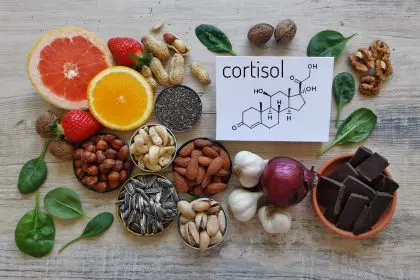Blackcurrants represent one of nature’s most underappreciated nutritional treasures, often overshadowed by more popular berries despite their exceptional health benefits. These small, dark purple fruits deliver an impressive array of nutrients that contribute to overall wellness in numerous ways. From strengthening immune function to supporting cardiovascular health, blackcurrants offer substantial advantages that deserve greater recognition in health-conscious communities.
Research increasingly confirms that these tart berries provide particular benefits for individuals experiencing perimenopause and menopause, making them a valuable dietary addition during these transitional life stages. Understanding the full spectrum of blackcurrant benefits can help consumers make informed choices about incorporating them into wellness routines.
The nutritional profile of blackcurrants
These distinctive berries contain an exceptional concentration of essential vitamins and antioxidants that surpasses many other fruits. Blackcurrants stand out for their remarkably high vitamin C content, with a single cup providing more than 300% of the recommended daily intake. This concentration significantly exceeds that found in citrus fruits traditionally associated with vitamin C.
Beyond vitamin C, blackcurrants contain substantial amounts of vitamins A, E, and various B-complex vitamins. The mineral content includes potassium, iron, and manganese, all critical for various bodily functions. This comprehensive nutritional profile creates a foundation for the numerous health benefits associated with regular blackcurrant consumption.
Historical challenges and current availability
Blackcurrants have an interesting history in the United States, where they faced cultivation restrictions for decades due to concerns about white pine blister rust, a fungus potentially harmful to pine forests. These restrictions limited American familiarity with blackcurrants compared to European countries, where they have long been popular in culinary and medicinal applications.
Today, these restrictions have been modified in many states, increasing availability of blackcurrants in various forms. Modern consumers can access blackcurrants as fresh berries, dried fruit, frozen products, juices, and concentrated supplements. This improved accessibility allows more people to incorporate blackcurrants into their diets and experience their health benefits.
Immune system enhancement
The exceptional vitamin C content in blackcurrants provides powerful immune support, helping the body defend against pathogens and recover from illness more efficiently. This water-soluble vitamin plays crucial roles in numerous immune functions, including enhancing white blood cell production and activity.
Additionally, blackcurrants contain anthocyanins, powerful antioxidants that give the berries their distinctive dark color. These compounds help neutralize free radicals in the body, reducing oxidative stress and supporting cellular health. The combination of vitamin C and anthocyanins creates a synergistic effect that strengthens overall immune response more effectively than either nutrient alone.
Anti-inflammatory properties
Blackcurrant seed oil contains significant amounts of gamma-linolenic acid (GLA), an omega-6 fatty acid with demonstrated anti-inflammatory effects. The body converts GLA into substances that help regulate inflammatory responses, potentially providing relief for conditions characterized by chronic inflammation.
Research suggests that regular consumption of blackcurrant products may help reduce inflammation markers in the body. This anti-inflammatory action can benefit individuals with inflammatory conditions such as arthritis, offering a natural complement to conventional treatments. The combination of anthocyanins and GLA creates a multi-faceted approach to managing inflammation throughout the body.
Bone health protection
Particularly relevant for perimenopausal and menopausal women, blackcurrants show promising effects on bone health. Clinical studies indicate that daily blackcurrant supplementation may help reduce bone mineral density loss, a common concern during and after menopause when estrogen levels decline.
One notable study demonstrated that women taking blackcurrant supplements experienced significantly less bone loss compared to control groups over the same period. This protective effect may stem from the vitamin K content and anti-inflammatory properties of blackcurrants, which support proper calcium utilization and reduce bone-damaging inflammation.
Cardiovascular benefits
Blackcurrants contribute to heart health through multiple mechanisms. Research indicates they may help improve cholesterol profiles by reducing low-density lipoprotein (LDL) while increasing high-density lipoprotein (HDL) levels. This beneficial effect on cholesterol balance supports overall cardiovascular function and reduces heart disease risk.
The potassium content in blackcurrants aids in blood pressure regulation, while GLA helps maintain arterial elasticity. Additionally, the anthocyanins in blackcurrants improve blood vessel function by enhancing nitric oxide production, which helps vessels dilate properly. This combination of effects creates comprehensive cardiovascular support that addresses multiple aspects of heart health.
Protection against chronic disease
The exceptional antioxidant profile of a blackcurrant may provide protection against various chronic conditions. Research suggests that regular consumption could reduce risk factors associated with certain cancers, neurodegenerative disorders, and metabolic conditions.
Studies indicate that blackcurrant compounds help reduce uric acid levels in the body, potentially preventing kidney stones and gout. The anthocyanins in blackcurrants also demonstrate neuroprotective effects in laboratory studies, suggesting potential benefits for brain health and cognitive function as we age. These protective effects highlight the role blackcurrants can play in comprehensive disease prevention strategies.
Digestive health improvement
Blackcurrants provide both soluble and insoluble fiber, supporting digestive health through multiple mechanisms. The fiber content promotes regular bowel movements and prevents constipation while supporting beneficial gut bacteria populations.
The anthocyanins in blackcurrants may also help reduce inflammation in the digestive tract, potentially benefiting individuals with inflammatory bowel conditions. This anti-inflammatory action, combined with the prebiotic effects of blackcurrant fiber, creates comprehensive gut health support that extends beyond basic digestive function to influence overall wellness.















